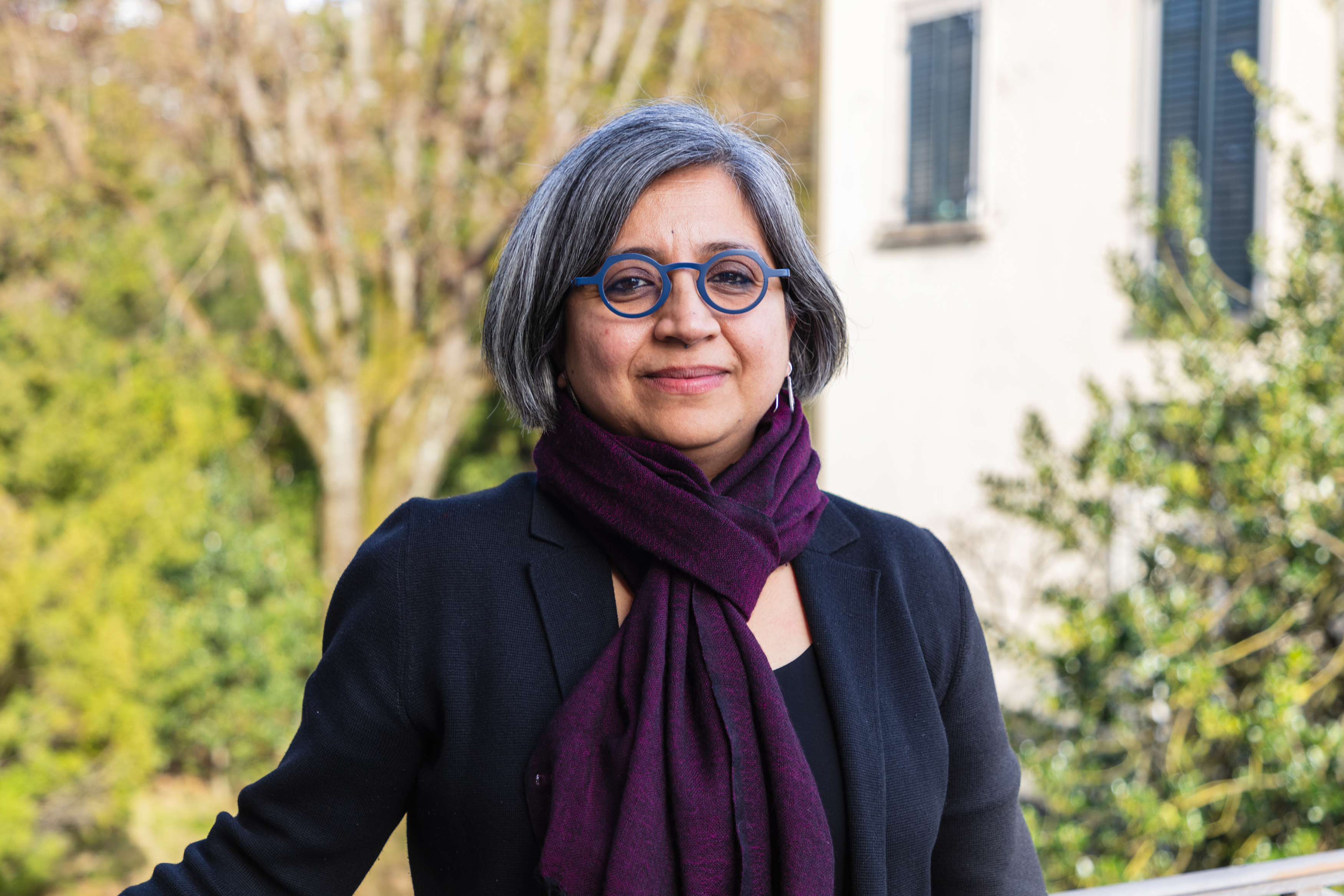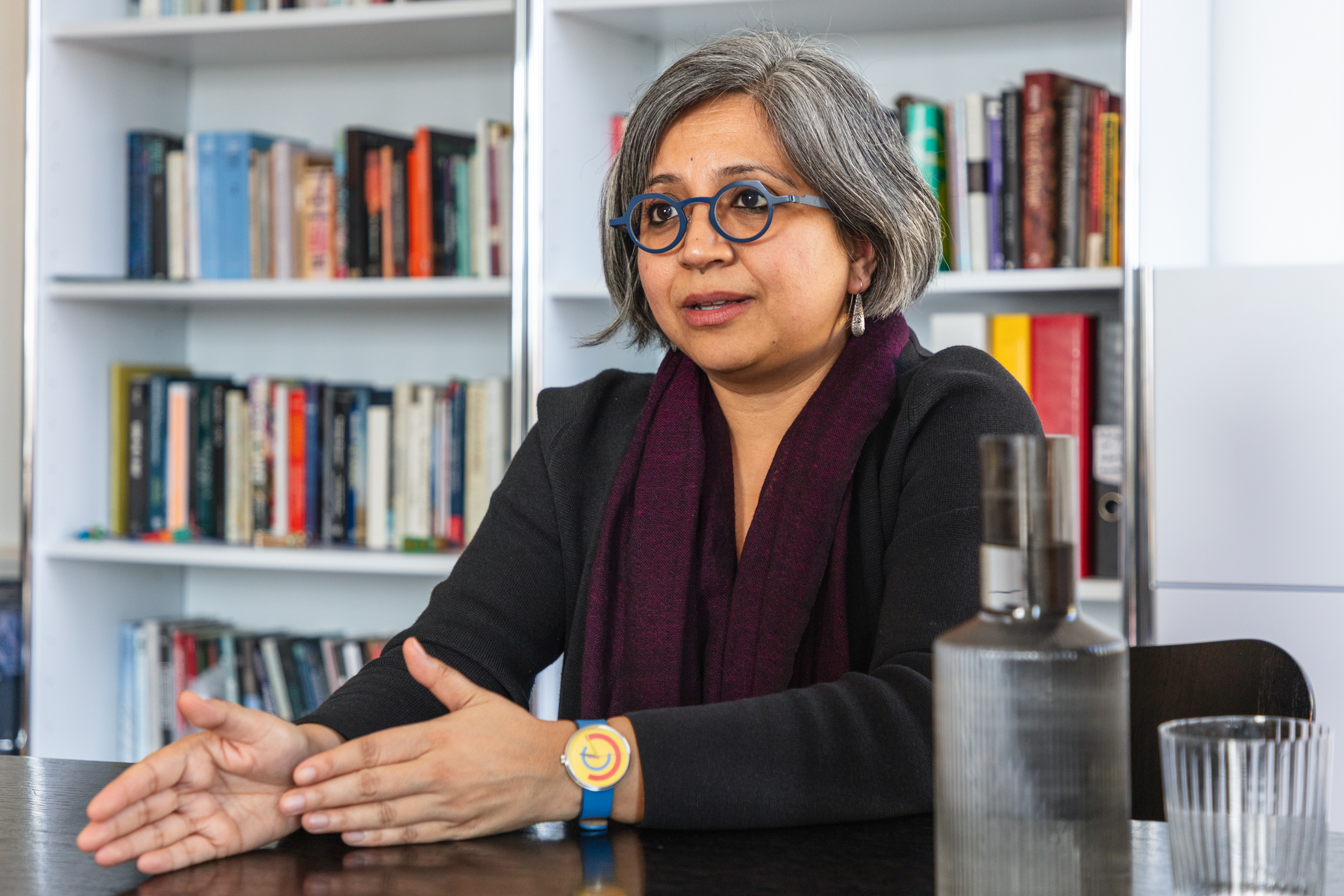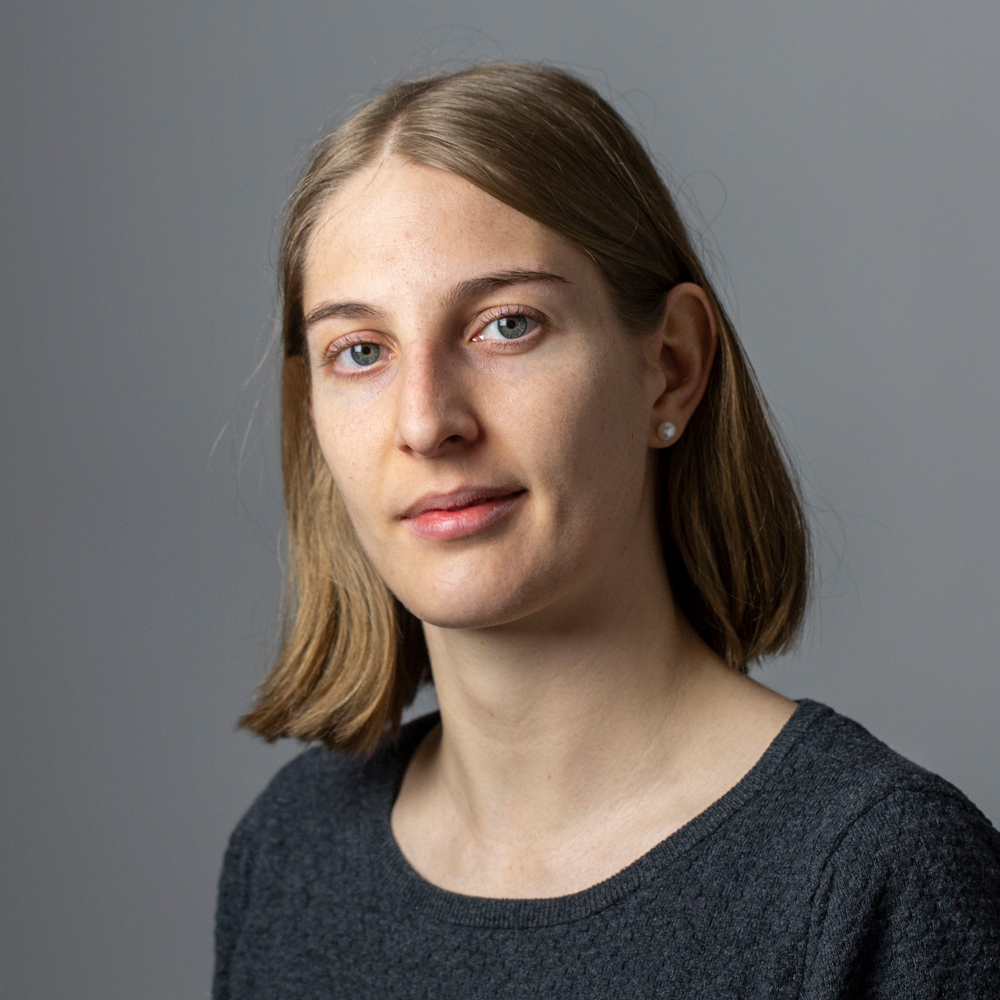
Zurich historian on elections in India: ‘I have a lot of hope for the future’

Professor Debjani Bhattacharyya shares with SWI swissinfo.ch her insights on India’s upcoming elections. The tension between federal states and the central government is a hot topic. The free trade agreement between Switzerland and India is clearly not.
Bhattacharyya is historian from India currently teaching at the University of Zurich. She holds the chair of the history of the Anthropocene. Her research, for instance, traces how British colonial rule shaped the ecology of West Bengal, in the process creating Kolkata – the city where she grew up.

SWI swissinfo.ch: You come from the metropolis of Kolkata in West Bengal, in eastern India. Are the big questions ahead of the Indian elections the same there as in the rest of the country?
Debjani Bhattacharyya: Not at all. West Bengal is governed by the Trinamool Congress (TMC), which is not part of the ruling alliance of Narendra Modi’s Bharatiya Janata Party (BJP). In West Bengal, a key concern is stopping Modi’s government’s new Citizenship Amendment Act. This law, announced by the government in 2019, went through parliament in early March, but the Supreme Court’s decision is still pending.
SWI: The state of West Bengal is officially against the new act?
D.B.: Yes. There are many states on the border with Bangladesh, as well as in other parts of India, that are against it.
SWI: What is the aim of the controversial act?
D.B.: It will make it easier for persecuted minorities from neighbouring countries to obtain citizenship: for Sikhs, Buddhists and Christians. But Muslims who are persecuted in Myanmar, for example, will be excluded.
The act also introduces evidentiary requirements and cut-off dates for citizenship. In the state of Assam, where implementation has already begun, around two million members of the population External linkdo not feature on the citizens’ register. They are at risk of statelessness. Even if they are citizens, it will be difficult for them to prove it. They need a birth certificate, a school certificate – but in many of these villages there are no schools; this is where the poorest of the poor live. Particularly in Assam, many people have lived on both sides of the border with Bangladesh.
The borders have been fluid here since 1947 and since Bangladesh’s independence from Pakistan in 1971. Until a few years ago, there were 71 Bangladeshi enclaves in India and three Indian enclaves in Bangladesh. Today, around 10,000 people live in villages External linkthat do not appear on any map. There are also people who move seasonally to different places along the river floodplain. They are being completely disenfranchised.
This is a big problem and a hot topic in the coming elections.
SWI: India is a federal state. How much can West Bengal decide for itself independently of the national government?
D.B.: India had a federal structure. Over the past decade, centralisation has set in – in various forms. One leverage factor is the central government’s management of budgetary funds, though the Goods and Services Tax. Since the turn of the millennium, various governments have introduced this tax system in order to stimulate business across state lines. The BJP then introduced it in 2017. The funds from the Goods and Services Tax go to the central government.
SWI: Is funding cut if a state steps out of line?
D.B.: No, but payments are delayed. If you pick up a newspaper in West Bengal, you will constantly see headlines about withheld funds.
SWI: What are Indian newspapers saying about the free trade agreement with Switzerland and other members of the European Free Trade Association (EFTA)? This is a big issue in Switzerland.
D.B.: I learnt about it from the Neue Zürcher Zeitung – and not from the three Indian newspapers I read each day. That was strange. When I tried to read up, I hardly found anything in the Indian media outside specialised business journals. If anything happens with Germany, France, the UK, the United States or Australia, it gets attention in India; but it’s different with Switzerland. This is interesting because Switzerland is present in India. One of my students is researching the presence of Nestlé, which dates back to the 1950s – even though the Indian economy was protectionist at the time.
SWI: In Switzerland, NGOs such as Public Eye are criticising the agreement as it could expose the Indian drug industry to lawsuits from the Swiss pharmaceutical sector.
D.B.: Personally, I am ambivalent about it. Should there really be such agreements, if freedom of the press is limited in India, democracy has failed and political violence is occurring? Perhaps. Perhaps such agreements create jobs; India has high unemployment. In India, the debate has in any case taken a different turn. All Indian parties focus strongly on welfare. Over the past ten years, the central government has cut back funding for sustainable programmes such as MGNREGAExternal link. This scheme provides work for 100 days for the unemployed and offers upward social mobility for some people in rural areas.
Instead, politicians are handing what are known in political science as “freebies”. In West Bengal, there is competition between the central government and the local government. The prime minister’s photo adorns gas cylinders. Young women receive money through a programme named after the TMC chief minister of West Bengal. This essential support is accompanied by populist rhetoric – from the right within the central government, and from the centre-left in West Bengal.

SWI: What is your view of the ruling TMC in West Bengal?
D.B.: It is credibly secular, an exception in today’s India. Since the 1990s, when neoliberalism transformed the Indian economy, religiosity has found its way broadly into politics; whereas we started out in 1947 as a country with a secular constitution. Jawaharlal Nehru – a great statesman in my opinion – wanted industrialisation and development. He used to say that dams were the temples of the new India. Indian secularism is not laicism, but rather a form of ecumenism. We already had a BJP government in the early 1990s, but its leader – unlike Modi today – attended every Islamic festival. It was the done thing.
SWI: You said Nehru held that dams were the temples of the future. Does Modi see the future in dams and Hindu temples?
D.B.: You could say that. After all, Modi opened the Sardar Sarovar Dam more than half a century after the foundation stone was laid. During his first election, the springboard was development, not religion. He said then that Gujarat presented a development model that could be applied to all of India. He places the stakes on building dams and temples. Dams, temples and big statues.
SWI: A year ago, the German Konrad-Adenauer FoundationExternal link predicted that Modi would be elected for the third time in 2024. There now seems to be little doubt about this.
D.B.: There is a good chance that he will serve a third term. He will be one of India’s longest-serving prime ministers. Over the past few years, we have seen India’s return to global power. We are a bulwark against China – which is why the loss of democracy and growing inequality are seen as less important by the US, Western Europe and Australia. India is a major buyer of weapons. The Indian Ocean is a critical region for current geopolitical disputes. Under Modi, India has gained a seat on the United Nations Security Council.
Many Indians, especially wealthy members of the diaspora, see Modi’s India in a positive light, as a strong nation run by a strong man.

SWI: It looks as if “strong men” are currently dominating politics in many places. As a professor of the history of the Anthropocene, would you say that such figures are an expression of this age in which humans are shaping the planet?
D.B.: Yes. These strong men are emerging at a time of ecological change. Even if the oil and gas industries deny it and the extraction of raw materials, such as uranium in India, continues unabated, we are already in a global transition. I fear that even the proposed green transition could turn nasty.
SWI: Things could turn nasty?
D.B.: We are living a complex situation. Firstly, we have made nature into a storehouse for supplies. At the same time, forms of ecological populism are emerging that present themselves as an alternative to technological modernity. In India, for example, people are turning massively to alternative healing methods. This is sometimes romanticised in the West, but overall it merely conceals the state’s inability to guarantee the infrastructure for a public health system.
Another example is the River Ganges. After the recognition of Maori rights and indigenous knowledge systems in New Zealand, the River Wanganui became a legal entity, in a move rightly welcomed around the world. Following suit, in India the Ganges was declared a legal entity in the name of environmental protection, which only consolidated its mythical status in Hindu cosmology.
SWI: All this sounds worrying. Do you still have hope for India’s political development?
D.B.: This is the momentum today, but I have a lot of hope for the future. Modi is the most popular prime minister of all time. But things are changing in India. There is still a lot of opposition. The BJP is having a hard time asserting itself in some states. How long can economic inequality grow? For how long can a political system be built on creating religious, ethnic and yes, caste-based divisions? It won’t last forever.
SWI: So you are optimistic in the long term?
D.B.: It took 300 years for India to shake off British colonialism. I’m a historian. I see things in the long term.
SWI: And in the short term what are you hoping for?
D.B.: A strong opposition in parliament that can control the government.
SWI: Many experts today call India an illiberal democracy. Do you share this assessment?
D.B.: Yes. The free press has collapsed, so we can hardly speak of a fourth estate any more. Many media outlets are pro-regime – and anyway there is very little information and much clamour.
SWI: The Supreme Court will decide on the new Civil Rights Act. Would you say that the judiciary is still independent?
D.B.: The court has made mixed decisions over the past decade – sometimes balanced, sometimes pro-regime. But court cases are slow. If justice is delayed for too long, at some point it becomes unjust. We thus have political prisoners who have been awaiting verdicts for a very long time in prison. Certain aspects of the legal architecture have been turned into an instrument. In fact, this started even before Modi – and has simply intensified under this government.
Edited by Mark Livingston. Adapted from German by Julia Bassam/subbed ds

In compliance with the JTI standards
More: SWI swissinfo.ch certified by the Journalism Trust Initiative






























You can find an overview of ongoing debates with our journalists here . Please join us!
If you want to start a conversation about a topic raised in this article or want to report factual errors, email us at english@swissinfo.ch.